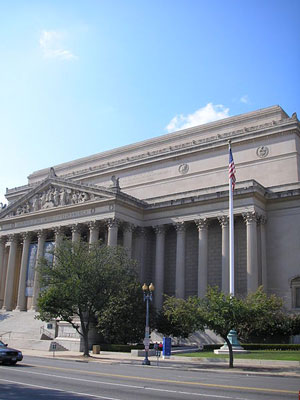Difference between revisions of "National Archives and Records Administration"
| Line 4: | Line 4: | ||
NARA holds ownership over and runs daily operations at ten presidential libraries. In 2003 this cost NARA approximately $42 million. The most recent presidential complex added to the NARA system is the [[Clinton Library]] in Little Rock, Arkansas, which opened in 2004. | NARA holds ownership over and runs daily operations at ten presidential libraries. In 2003 this cost NARA approximately $42 million. The most recent presidential complex added to the NARA system is the [[Clinton Library]] in Little Rock, Arkansas, which opened in 2004. | ||
| − | One of NARA's main purposes is to safeguard and preserve the records in the [[Clinton Library Archives]]. | + | One of NARA's main purposes is to safeguard and preserve the records in the [[Clinton Library Archives]]. According to the [[Presidential Records Act of 1978]] all presidential papers, excluding those of national security interest, become public in 2013, twelve years after Clinton left office. In November 2001 President George W. Bush signed an executive order that allowed sitting presidents to deny release of the records of prior administrations regardless of the wishes of the president who generated the papers in the first place. |
==References== | ==References== | ||
==External links== | ==External links== | ||
Revision as of 01:34, 31 December 2007
National Archives and Records Administration (NARA) is the "nation's recordkeeper."
NARA holds ownership over and runs daily operations at ten presidential libraries. In 2003 this cost NARA approximately $42 million. The most recent presidential complex added to the NARA system is the Clinton Library in Little Rock, Arkansas, which opened in 2004.
One of NARA's main purposes is to safeguard and preserve the records in the Clinton Library Archives. According to the Presidential Records Act of 1978 all presidential papers, excluding those of national security interest, become public in 2013, twelve years after Clinton left office. In November 2001 President George W. Bush signed an executive order that allowed sitting presidents to deny release of the records of prior administrations regardless of the wishes of the president who generated the papers in the first place.
